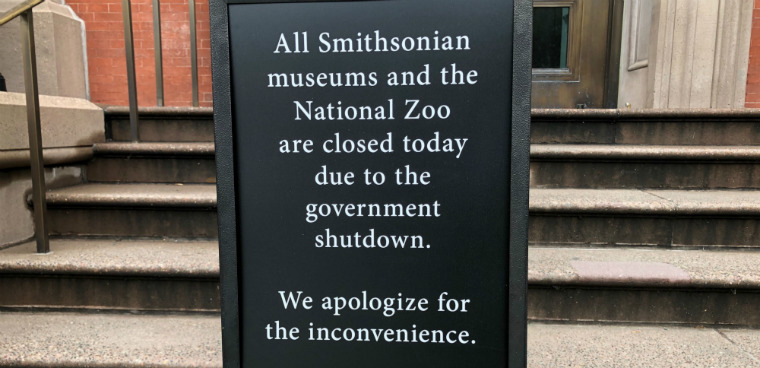House to probe legality of making feds work during shutdowns

A House panel is probing the legal gray area of excepted operations during a lapse in appropriations.

A House panel is probing the particulars of which employees can be required to work during a lapse in appropriations.
Most employees whose pay is covered by appropriations are furloughed during a shutdown, but excepted employees stay on for emergency work without pay to protect the safety of human life or property.
It isn't always clear what operations meet the life and property exception. The duration of the most recent shutdown put agencies in an especially difficult bind, prompting creative alternatives to bring employees back to carry out operations.
The House Appropriations Subcommittee on the Interior, Environment and Related Agencies questioned the legality of some of those alternatives during a Feb. 6 hearing.
Subcommittee Chairwoman Rep. Betty McCollum (D-Minn.) announced she would be requesting an investigation and opinion from the Government Accountability Office about the legality of the Department of Interior's decision to use money collected through fees to pay for operations at National Park Service sites during the shutdown.
"Today, I'm more than convinced, sadly, the administration has ignored the law and the policies the agencies have had in place for years," she said.
During the shutdown, the National Park Service tapped into funds collected through entrance fees to maintain operations. These fees are legally authorized to fund "repair, maintenance, and facility enhancement related directly to visitor enjoyment, visitor access, and health and safety."
GAO's Managing Associate General Counsel Julie Matta testified that while the investigative arm has not issued any legal opinions regarding NPS's fees to date, agencies are prohibited from switching funding sources "because one account has run out of money."
"In the fees situation," she added, "we'd be looking at what are the purposes that Park Services' general operating appropriations were made for, what are the statutory purposes for the fees, is there overlap, has the agency elected one appropriation over the overlap and thus, should it be required to adhere to that?"
Members of the committee also raised concerns about the change of course regarding federal employees who were initially sent home at the outset of the shutdown, only to be called back later on.
Sam Berger, an attorney at the Office of Management and Budget from 2010 to 2015 who worked on the governmentwide guidance issued ahead of the 2013 shutdown, said the deviation from the initial contingency plans "raises concerns about whether the law was followed."
"Agencies are supposed to plan for those circumstances, so when they make that change, it makes you ask why," he said.
Berger, now the senior advisor at the Center for American Progress, noted that "these types of changes are even more surprising given that agencies implemented their plans over a multi-week period just five years ago, and subsequently revised plans to reflect that experience."
He also pointed to an IRS plan to recall about 36,000 employees three weeks into the shutdown, most of whom were called back to process tax returns, as a move of questionable legality.
"Agencies create shutdown plans for a reason, and making significant changes in the middle of a funding lapse undermines many of the reasons for undertaking such planning efforts in the first place," he said.
The administration's handling of the shutdown has come under fire across government.
Last week, U.S. District Court Judge Richard Leon warned the White House that the IRS plan could be illegal and grounds for judicial intervention.
Currently, three lawsuits are working their way through the court against the administration challenging the legality of requiring some federal employees, regardless of excepted status, to work without pay. Their next hearing is scheduled for Feb. 22.
On the Senate side, Mark Warner (D-Va.) said recently that whether Congress should step in and evaluate at determinations of who is deemed essential and nonessential in a government "is a legitimate question."